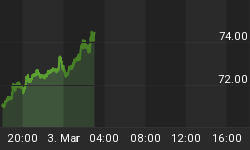Boston Fed President Eric Rosengren recently rattled markets when he warned that low-interest rates were increasing the temperature of the U.S. economy, which now runs the risk of overheating. That sunny opinion was echoed by several other Federal Reserve officials who are trying to portray an economy that is on a solid footing. And thus, prepare investors and consumers for an imminent rise in rates. But perhaps someone should check the temperatures of those at the Federal Reserve, the idea that this tepid economy is starting to sizzle could not be further from the truth.
In fact, recent data demonstrates that U.S. economic growth for the past three quarters has trickled in at a rate of just 0.9%, 0.8%, and 1.1% respectively. In addition, tax revenue is down year on year, S&P 500 earnings fell 6 quarters in a row and productivity has dropped for the last 3 quarters. And even though growth for the second half of 2016 is anticipated with the typical foolish optimism, recent data displays an economy that isn't doing anything other than stumbling towards recession.
The Institute for Supply Management Purchasing Manager's index for the manufacturing sector during August fell into contraction at 49.4, while the service sector fell to 51.4 compared to 55.5 in July, which was the lowest reading since February 2010 and the biggest monthly drop in eight years. And the recent jobs report was also full of disappointment too, with just 151,000 jobs created in August and a decline in the average work week and aggregate hours worked.
But our Federal Reserve is not the only central bank making statements troubling to stock and bond prices. The President of the European Central Bank (ECB), Mario Draghi, threw all the major averages into a tailspin at a recent press conference by failing to indulge markets with a grander scheme to destroy the euro. When asked if the ECB had talked about extending Quantitative Easing (QE) at its meeting, Draghi had the gall to make the egregiously hawkish announcement that they "did not discuss" anything in that regard. This mere absence of a discussion regarding extending or expanding QE caused the Dow to shed nearly 400 points on Friday and spiked the U.S. Ten-year from 1.52% to 1.68%. Indeed, stock and bond prices plunged across the globe.
It appears that nothing is ever enough to satisfy global stock and bond markets that are completely addicted to central bank stimulus. Mr. Draghi has managed to drive rates so low that they are now in effect paying European companies to borrow--yet markets want even more.
That's correct, it's no longer just sovereign debt that offers a negative yield. According to Bloomberg, French drug maker Sanofi just became the first nonfinancial private firm to issue debt at yields less than zero. Also, shorter-term notes of some junk-rated companies, including Peugeot and Heidelberg Cement, are yielding about zero percent.
Christopher Whittall of The Wall Street Journal reports that as of September 5th, €706 billion worth of investment-grade European corporate debt was trading at negative yields. This figure represents over 30% of the entire market, according to the trading platform Tradeweb. You can attribute this to the fact that global central bank balance sheets have increased to $21 trillion from $6 trillion in 2007, as central banks continue to flood the markets with $200 billion worth of QE every month.
The bond bubble has now reached epic proportions and its membrane has been stretched so thin that it has finally started to burst. As mentioned, not only did U.S. yields spike on the Draghi disappointment but the Japanese Ten-year leaped close to positive territory from the all-time low of -0.3% in late July. And the German Ten-year actually bounced back into positive territory for the first time since July 22nd.
What did Mario Draghi say that was so unsettling to the Global bond market and caused speculators that have been front-running the central bank's bid for the last eight years to panic? He didn't avow to sell assets; he didn't even promise to reduce the 80 billion euros worth of bond buying each month. All he did was fail to offer a guarantee that the pace of the current bond buying scheme would be increased or extended beyond March 2017. That alone was enough to cause yields around the globe to spike and stock markets to plunge.
This is merely the prelude of what is to come once the ECB and Bank of Japan reverse their monetary stimuli; or when the Fed actually begins its rate normalization campaign. Just for the record, the Fed's first hike in ten years, which occurred last December, does not count as a tightening cycle.
The bond bubble has grown so immense that if, or when, central banks ever begin to reverse monetary policy it will cause yields to spike across the globe. But as recent trading volatility has proved, it won't just be bond prices that collapse; it will be every asset that is priced off that so called "risk free rate of return" offered by sovereign debt. The painful lesson will then be learned that negative yielding sovereign debt wasn't at all risk free. All of the asset prices negative interest rates have so massively distorted including; corporate debt, municipal bonds, REITs, CLOs, equities, commodities, luxury cars, art, all fixed income assets and their proxies, and everything in between will fall concurrently along with the global economy.
Perhaps after this next economic collapse central banks will deploy even more creative ways to increase their hegemony and destroy wealth; such as banning physical currency and spreading electronic helicopter money around the world. In the interim, having a portfolio that hedges against extreme cycles of both inflation and deflation is essential for preserving your wealth.
















